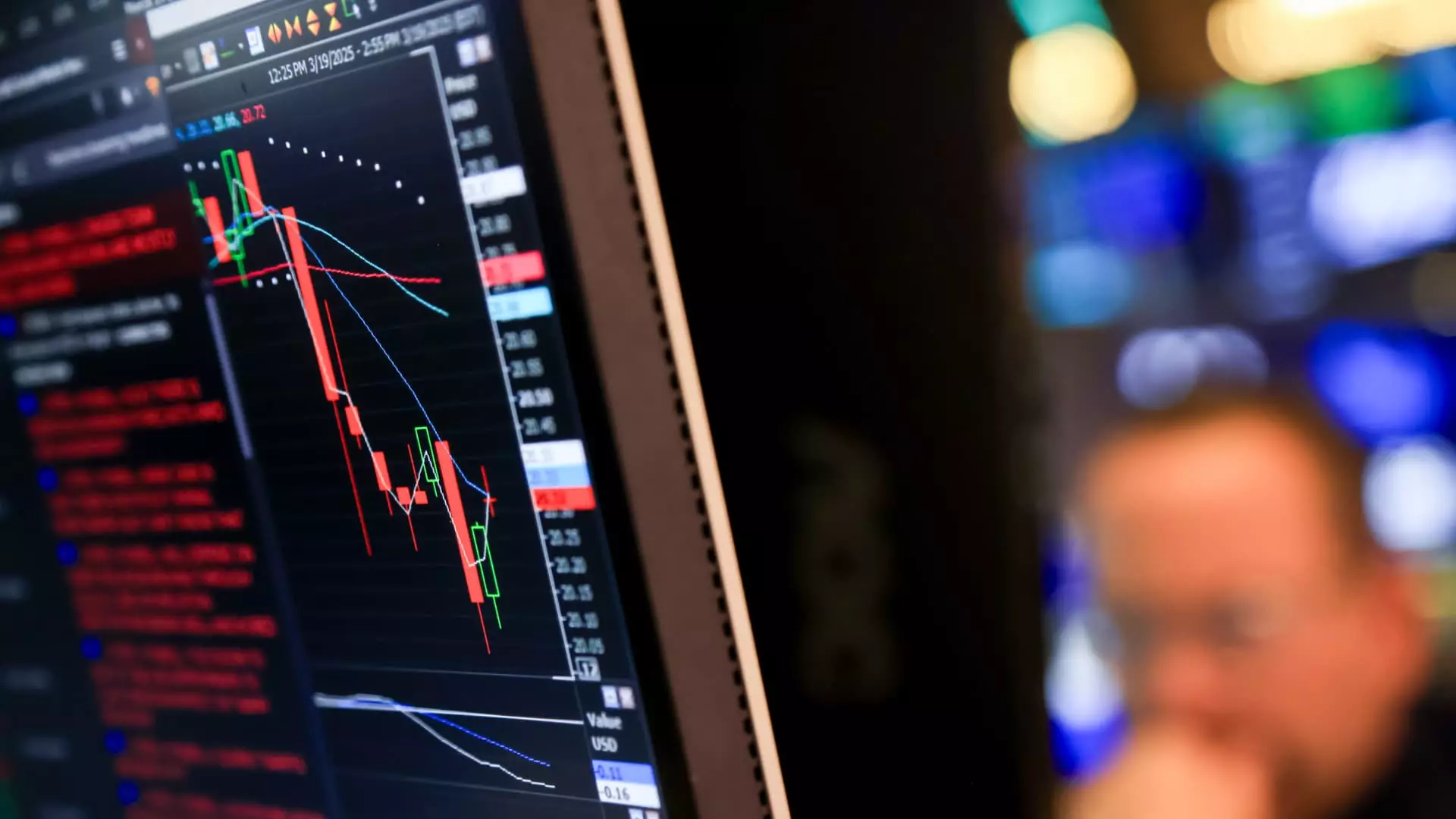In the ever-evolving landscape of venture capital, the recent economic downturn has inflicted significant pressure on both investors and startups alike. As the markets enter a phase marked by turbulence—amplified by geopolitical uncertainties such as U.S. tariffs—the venture capital industry is grappling with the implications of prolonged economic instability. In typical scenarios, venture capitalists are able to recoup investments through initial public offerings (IPOs) or mergers and acquisitions (M&As), but the current forecast is grim, primarily due to a stark decline in public market activity.
The case of notable tech companies like Klarna and StubHub exemplifies the urgency of this situation; both firms postponed their IPO plans, an alarming signal in an environment that traditionally thrives on fruitful exits. Tightening market conditions threaten to prolong the time it takes for startups to reach a stage where they can bomb their IPOs, which places increased pressure on venture capital funds. The investment landscape morphs continuously, and there appears to be a growing chasm between private and public market valuations.
Startup Valuations in a Shifting Landscape
A crucial aspect of venture capital longevity revolves around startup valuations, which often fluctuate based on market conditions. Unlike public companies, valuations in private markets do not react immediately to public market downturns. This peculiarity complicates capital raising efforts for tech startups, especially as looming economic uncertainties induce investors to reevaluate their positions. As venture capitalists navigate these murky waters, they often find themselves in a dilemma; if public valuations plummet, not only will this impact their exit strategies but also how much funding can be anticipated in future rounds.
Given that late-stage firms are more sensitive to these market fluctuations compared to their early-stage counterparts, the repercussions can be severe. Many larger firms, which are nearer to going public, might face a higher risk of being devalued, forcing them to navigate “down rounds,” where they raise funds at reduced valuations. This reality can create a vicious cycle, whereby reduced capital can stymie growth, making subsequent fundraising increasingly difficult.
Looking for Silver Linings Within the Chaos
Despite the clouds hanging over the venture capital sector, there glimmers of hope. Some industry experts suggest that the current uncertainty might provide fertile ground for Europe’s tech startups. According to Sanjot Malhi from Northzone, if the U.S. environment becomes inhospitable due to ongoing tariffs and corporate challenges, talent and capital may find their way toward more welcoming shores—like Europe. This shift offers European tech firms a unique opportunity to flourish in what could become a more favorable business climate.
Christel Piron, CEO of PSV Foundry, also notes that the turbulence could foster a sense of community and cohesion among European startups, as founders increasingly choose to remain in Europe to contribute to its burgeoning tech landscape. The ongoing challenges present an unexpected chance for Europe to establish itself as a resilient tech powerhouse.
The Role of Mergers and Acquisitions
With public markets in flux and IPOs on hold, mergers and acquisitions may present a compelling alternative for venture capitalists seeking exits. M&As could offer pragmatic solutions, especially in environments where clarity and optimism are lacking. Stakeholders consistently look for “problem-solving” exits, and M&A opportunities may provide a viable path for many firms currently facing the realities of stagnant IPO activity.
However, while M&As might sound advantageous, they come with their own set of risks and potential for complications. The carefully orchestrated dance that occurs during such corporate consolidations requires strategic foresight, and firms must be prepared for the pressure to produce returns for their investors under less-than-ideal circumstances.
Preparing for the Challenges Ahead
The adaptation strategy for venture capitalists will involve not just navigating the current crisis but also preparing for the possibility that these economic shifts could be more enduring. Institutions like Antler warn stakeholders that while optimism for a rebounding IPO market remains, they must also plan for a longer period without the normal liquidity that comes from exits.
Investing in areas that are likely to thrive despite adversities—such as health tech, sustainability, and remote work technologies—could yield dividends as consumer behavior evolves in response to ongoing global challenges. By making shrewd, informed decisions, venture capitalists can turn obstacles into opportunities, seizing the moment to support startups that might otherwise falter in the face of uncertainty.
The venture capital world is no stranger to challenges, but how it responds to this particular moment will define its future. The potential for growth in alternative markets, the innovative spirit of entrepreneurs, and the resilience of investment strategies will all be critical in reshaping the narrative during these uncertain times.

